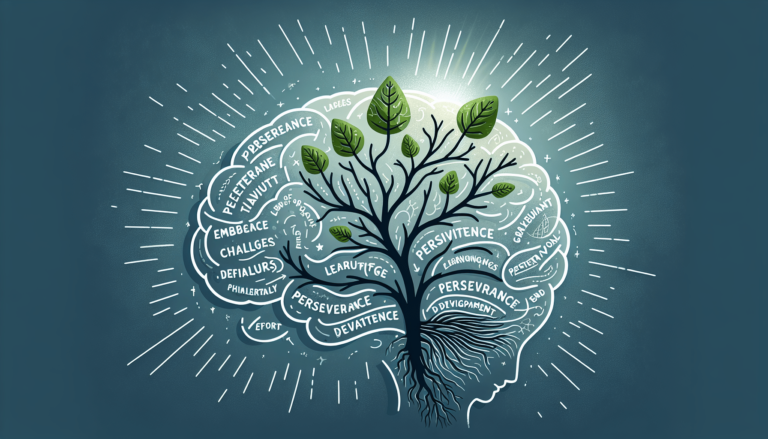The Psychology Of Hope: Understanding Its Benefits
In this article, you will explore the fascinating realm of the psychology of hope and uncover its numerous advantages. Discover how hope influences our thoughts, emotions, and actions, and learn why cultivating a hopeful mindset can lead to increased resilience, motivation, and overall well-being. Join us on this journey as we delve into the transformative power of hope and unlock its potential to shape our lives in remarkable ways. So, get ready to embark on a captivating exploration of the psychology of hope and discover how it can be a driving force behind our positive outlook and personal growth.
The Concept of Hope
Defining Hope
Hope is an essential aspect of the human experience, providing individuals with a sense of optimism, possibility, and motivation. It is a belief in the potential for positive outcomes, even in the face of challenges or uncertainty. Hope is not merely wishful thinking; it is an active mindset that propels individuals forward and encourages them to persevere in their pursuit of goals and dreams. It involves having confidence in oneself and a belief that one’s efforts will lead to success. Hope is a powerful force that can shape our perceptions, actions, and overall well-being.
The Importance of Hope
Hope plays a vital role in our lives, influencing our thoughts, emotions, and behaviors. It provides us with a sense of purpose, direction, and optimism. Without hope, life can feel bleak and meaningless, leading to feelings of despair and helplessness. However, when individuals have hope, they are more likely to set and pursue goals, overcome obstacles, and maintain a positive outlook. Hope acts as a guiding light during challenging times, fostering resilience and perseverance. It fuels our motivation, determination, and belief in the possibility of a better future.
The Components of Hope
Hope is not a single construct but rather a multidimensional concept that comprises various components. These components work together to form a cohesive sense of hope. The first component is the belief in the attainability and feasibility of one’s goals. This belief is essential, as it provides individuals with the confidence and conviction needed to pursue their aspirations. The second component is the agency or the belief that one has the power to influence and shape their life circumstances. This sense of agency empowers individuals to take action and work towards their desired outcomes. Lastly, the component of pathways refers to the identification and creation of strategies and steps necessary to achieve one’s goals. Together, these components form a robust foundation for hope.
The Psychological Benefits of Hope
Increased Motivation and Goal-directed Behavior
Hope serves as a powerful motivator, driving individuals to take action and strive towards their goals. When individuals have hope, they are more likely to set specific, realistic goals and put forth the effort needed to achieve them. Hope fuels their determination and perseverance, even in the face of obstacles. Additionally, hope helps individuals maintain focus, increasing their ability to prioritize tasks and manage their time effectively. As a result, they are more likely to engage in goal-directed behavior and experience a greater sense of fulfillment and accomplishment.
Enhanced Resilience and Coping Mechanisms
Hope plays a significant role in enhancing individuals’ resilience and their ability to cope with adversity. When faced with challenges or setbacks, individuals with hope are more likely to view these obstacles as temporary and surmountable. They maintain a positive outlook and actively seek solutions, rather than succumbing to despair or giving up. Hope provides individuals with the strength and determination to bounce back from setbacks and continue progressing towards their goals. It fosters a sense of adaptability and resourcefulness, allowing individuals to navigate difficult situations more effectively.
Improved Well-being and Mental Health
The psychological benefits of hope extend to individuals’ overall well-being and mental health. Having hope contributes to an increased sense of positivity and optimism, which can buffer against the negative effects of stress and anxiety. Hopeful individuals are more likely to experience lower levels of psychological distress and depressive symptoms. Moreover, hope is linked to higher levels of self-esteem and self-worth, promoting a sense of personal satisfaction and fulfillment. It also fosters positive relationships, as hopeful individuals tend to communicate and interact with others in an optimistic and supportive manner.

The Role of Hope in Achieving Success
Positive Impact on Academic Performance
Hope has been found to have a positive impact on academic performance and achievement. Students with higher levels of hope are more likely to set specific, attainable goals, and exhibit greater motivation to succeed academically. They approach their studies with a growth mindset, believing in their abilities to learn and improve. Hopeful students are more likely to engage in positive study habits, seek help when needed, and persist through challenges. As a result, they tend to perform better academically and have a higher likelihood of completing their education.
Increased Job Satisfaction and Performance
Hope plays a significant role in the workplace, influencing job satisfaction and performance. Employees with hope are more motivated and engaged in their work, as they believe their efforts will lead to positive outcomes and professional growth. They exhibit greater resilience and adaptability, allowing them to navigate workplace challenges effectively. Hopeful individuals are also more likely to demonstrate proactive behavior, taking initiative and seeking opportunities for advancement. As a result, they tend to experience higher job satisfaction and are more likely to achieve their career goals.
Facilitates Personal Growth and Development
Hope is essential for personal growth and development. It encourages individuals to continuously strive for self-improvement and pursue their passions. Hopeful individuals exhibit a growth mindset, embracing challenges as opportunities for learning and development. They are more likely to seek out new experiences, take risks, and push beyond their comfort zones. Hope facilitates the exploration of one’s strengths, interests, and values, allowing individuals to discover and pursue fulfilling paths in life. By nurturing hope, individuals can unlock their full potential and experience personal growth and fulfillment.
Hope and Relationships
Hope as a Foundation for Healthy Relationships
Hope plays a pivotal role in fostering healthy and fulfilling relationships. When individuals have hope, they approach relationships with optimism, believing that they can build a deep connection and mutual understanding with others. Hopeful individuals tend to exhibit empathy, kindness, and trust, which are crucial for cultivating strong and meaningful relationships. Hope also encourages individuals to set and work towards relational goals, such as effective communication, conflict resolution, and shared experiences. By maintaining hope, individuals can nurture and sustain healthy relationships that bring joy and fulfillment.
Promotes Forgiveness and Conflict Resolution
Hope is instrumental in promoting forgiveness and conflict resolution in relationships. Hopeful individuals are more likely to believe in the possibility of repairing and reconciling relationships, even after experiencing hurt or conflict. They approach disagreements with a solution-focused mindset, actively seeking resolution and understanding. Hope fosters empathy and compassion, enabling individuals to view conflicts as opportunities for growth and greater connection. By harnessing the power of hope, individuals can navigate conflicts with openness, patience, and a willingness to reconcile, leading to healthier and more harmonious relationships.
Hope in Romantic Relationships
Hope is particularly relevant in romantic relationships, serving as a foundation for love, trust, and commitment. Hopeful individuals are more likely to believe in the potential for long-term happiness and fulfillment in their romantic partnerships. They approach relationships with a sense of optimism, believing that love can endure challenges and inspire personal growth. Hope enables individuals to maintain passion, intimacy, and a deep connection with their partners, even during difficult times. By cultivating hope within romantic relationships, individuals can foster resilience, mutual support, and a lasting sense of love and happiness.

Hope and Physical Health
Boosts Immune System and Healing Processes
Hope has been shown to have a positive impact on physical health, boosting the immune system and facilitating healing processes. Research suggests that hope enhances the body’s ability to fight off infections and illness by strengthening the functioning of the immune system. Hopeful individuals tend to engage in healthy behaviors, such as regular exercise, balanced nutrition, and adequate sleep, which support overall well-being. Additionally, hope has been found to promote faster recovery in individuals facing medical procedures or surgeries. By cultivating hope, individuals can provide their bodies with the necessary support to maintain optimal physical health.
Reduces Stress and Enhances Cardiovascular Health
Hope plays a vital role in reducing stress levels and improving cardiovascular health. When individuals have hope, they are more likely to perceive and appraise stressors in a more positive and manageable light. This positive mindset helps to reduce the physiological and psychological effects of stress on the body. Moreover, hope has been associated with lower blood pressure levels and improved cardiovascular functioning. By nurturing hope, individuals can protect their hearts and promote overall cardiovascular health, leading to a healthier and more resilient body.
Hope and Chronic Illness
Hope is particularly relevant for individuals facing chronic illness. In the face of a long-term health condition, hope provides individuals with a sense of purpose and a belief in the possibility of a better quality of life. Hope allows individuals to envision a future filled with resilience, strength, and improved well-being. It promotes a proactive approach towards managing the illness, encouraging individuals to seek appropriate healthcare, engage in self-care practices, and maintain a positive outlook. By embracing hope, individuals facing chronic illness can enhance their overall quality of life and experience improved mental and physical health outcomes.
Developing and Cultivating Hope
Recognizing and Challenging Negative Thinking Patterns
To develop and cultivate hope, it is essential to recognize and challenge negative thinking patterns that may hinder hopeful thinking. Negative thinking, such as self-doubt, pessimism, and excessive worry, can undermine one’s belief in the potential for positive outcomes. By becoming aware of these negative thoughts and replacing them with more positive and realistic ones, individuals can foster a hopeful mindset. Techniques such as cognitive restructuring, reframing negative thoughts, and practicing gratitude can help individuals break free from negative thinking patterns and cultivate a sense of hope.
Setting Realistic and Achievable Goals
Setting realistic and achievable goals is crucial for cultivating hope. When individuals set unrealistic or unattainable goals, they may become discouraged and lose hope. However, setting specific, measurable, and achievable goals provides individuals with a sense of direction and progress. By breaking larger goals into smaller, manageable steps, individuals can experience a sense of accomplishment and maintain their hope. It is important to celebrate small victories along the way, reinforcing the belief that progress is possible and success is attainable.
Seeking Support and Building Resilience
Building a support system is essential for cultivating and maintaining hope. Seeking support from friends, family, or mental health professionals can provide individuals with encouragement, guidance, and validation. Social support fosters hope by providing individuals with a sense of belonging and connection. Additionally, building resilience is crucial for maintaining hope in the face of adversity. Resilience can be developed by cultivating coping strategies, practicing self-care, and fostering a positive mindset. By seeking support and building resilience, individuals can cultivate a strong foundation of hope.
Cultural and Contextual Factors
Cultural Differences in Hope
Hope is influenced by cultural and contextual factors, with variations in its manifestation across cultures. Different cultures may place different emphasis on collective hope, individual hope, or spiritual hope. Cultural norms, beliefs, and values shape individuals’ understanding and experience of hope. For example, Collectivist cultures may prioritize collective hope, focusing on societal or community goals, while Individualistic cultures may emphasize personal hope and individual aspirations. Understanding these cultural differences can help mental health professionals tailor interventions and support individuals in their unique cultural contexts.
Hope in Challenging Environments
Hope becomes particularly crucial in challenging environments, such as poverty, conflict, or disaster-stricken areas. In these contexts, hope acts as a lifeline for individuals, providing them with the strength and resilience to persevere through adversity. Hope allows individuals to envision a brighter future and motivate collective action towards positive change. Furthermore, hope can empower individuals to identify and utilize available resources, build support networks, and engage in community initiatives. By fostering hope in challenging environments, individuals can nurture resilience and work towards improving their circumstances.
Societal and Community Impact of Hope
Hope has a profound impact on society and communities as a whole. When individuals within a society are hopeful, it can contribute to a positive and productive collective mindset. Hopeful societies tend to exhibit higher levels of social cohesion, altruism, and civic engagement. These societies are more likely to invest in education, infrastructure, and social programs, promoting collective well-being. Moreover, hope can inspire individuals to take on leadership roles, initiate social change, and advocate for equality and justice. By fostering hope at the societal and community levels, we can create a more resilient and flourishing society.
Hope and Mental Health Professionals
Using Hope as a Therapeutic Tool
Mental health professionals can harness the power of hope as a therapeutic tool to support individuals in their healing and growth process. By fostering hope, mental health professionals instill confidence in their clients’ ability to change and overcome challenges. They can provide a safe and supportive space where individuals can explore their hopes, aspirations, and fears. Mental health professionals can help individuals identify and challenge self-limiting beliefs, develop coping strategies, and set realistic goals. By incorporating hope into therapy, mental health professionals can inspire optimism and resilience within their clients.
Integrating Hope into Treatment Approaches
Integrating hope into treatment approaches is essential for promoting positive mental health outcomes. By incorporating hope-focused interventions, mental health professionals can enhance the effectiveness of various therapeutic modalities. Therapies such as cognitive-behavioral therapy (CBT), positive psychology, and solution-focused brief therapy emphasize the cultivation of hope, goal-setting, and positive reframing. By helping individuals cultivate hope and adopt a proactive mindset, mental health professionals can enhance treatment outcomes and empower their clients to face life’s challenges with resilience and optimism.
Empowering Clients through Hope
An essential aspect of a mental health professional’s role is to empower their clients through the cultivation of hope. By providing a safe and supportive environment, mental health professionals can encourage individuals to explore their values, strengths, and aspirations. They can help clients develop a sense of agency and control over their lives, empowering them to make positive changes. Mental health professionals can instill hope by celebrating small victories, encouraging personal growth, and fostering a belief in the possibility of a fulfilling and meaningful life. By empowering their clients through hope, mental health professionals can facilitate transformative change.
Hope in the Face of Adversity
Hope as a Coping Mechanism
Hope serves as a powerful coping mechanism in the face of adversity. When individuals are confronted with challenging circumstances, hope provides them with the strength and resilience to persevere. It enables individuals to reframe difficulties as opportunities for growth, encouraging a proactive approach towards problem-solving. Hope allows individuals to maintain a positive outlook and belief in the potential for positive outcomes, even in the midst of adversity. By harnessing hope as a coping mechanism, individuals can navigate and overcome the most daunting challenges.
Finding Hope in Dark Times
While it may seem challenging, finding hope in dark times is both possible and essential for individuals’ well-being. In the midst of hardship, hope can manifest in small moments of joy, acts of kindness, or supportive relationships. It can be found in the resilience of others who have faced similar struggles and emerged stronger. Nurturing hope involves seeking out positive experiences, practicing gratitude, and focusing on what is within one’s control. By actively looking for sources of hope, individuals can find solace, strength, and inspiration in even the darkest of times.
Overcoming Obstacles with Hope
Hope empowers individuals to overcome obstacles and achieve their goals, even in the face of significant challenges. When confronted with obstacles, hopeful individuals are more likely to view them as temporary setbacks rather than insurmountable barriers. They approach obstacles with a problem-solving mindset, seeking alternative routes or strategies to overcome them. Hope fosters resilience, determination, and adaptability, enabling individuals to pivot, learn from setbacks, and continue moving forward. By harnessing hope, individuals can overcome even the most daunting obstacles and achieve their desired outcomes.
Balancing Realistic Expectations
Hope vs. Unrealistic Optimism
While hope is a powerful and positive force, it is crucial to differentiate between hope and unrealistic optimism. Unreasonable optimism involves having unrealistic expectations or beliefs about the likelihood of positive outcomes, despite evidence suggesting otherwise. Unrealistic optimism can lead to disappointment, frustration, and a loss of motivation when faced with setbacks or failures. Balancing hope requires maintaining a realistic perspective while still nurturing a sense of possibility and optimism. It involves acknowledging potential challenges while remaining confident in one’s ability to overcome them.
Navigating Disappointments and Setbacks
In the pursuit of goals and dreams, individuals may experience disappointments and setbacks. Navigating these challenges while maintaining hope requires a resilient mindset and adaptability. When faced with setbacks, it is essential to reframe them as opportunities for learning and growth. Cultivating a growth mindset enables individuals to view setbacks as stepping stones towards eventual success. It is important to process and learn from disappointments, adjusting goals and strategies as necessary. By navigating setbacks with resilience and hope, individuals can continue moving forward and ultimately achieve their desired outcomes.
Strategies for Balancing Hope and Realism
Balancing hope and realism requires intentionality and self-awareness. Strategies for achieving this balance include setting specific and achievable goals, conducting a critical evaluation of one’s progress, and seeking objective feedback from others. It is important to establish a flexible mindset that allows for adjustments and adaptations along the way. Creating contingency plans can help individuals prepare for potential challenges while maintaining a hopeful outlook. Regular reflection and self-assessment can aid in recognizing the balance between hope and realism, ensuring that expectations remain grounded while still allowing for the pursuit of meaningful goals. By adopting strategies for balancing hope and realism, individuals can navigate the complexities of life with resilience, optimism, and a sense of purpose.
In conclusion, hope is a powerful force that influences various aspects of our lives. It is a foundation for motivation, resilience, and positive relationships. Hope drives individuals to pursue their goals and aspire for personal growth, leading to success in various domains of life. It plays a crucial role in maintaining physical and mental well-being, acting as a coping mechanism in challenging times. Cultivating hope involves recognizing and challenging negative thinking patterns, setting realistic goals, and seeking support. Understanding the cultural and contextual factors that shape hope allows mental health professionals to effectively empower their clients. Balancing hope with realism requires intentional strategies and a resilient mindset. Ultimately, embracing hope allows individuals to overcome adversity, find solace in dark times, and achieve a sense of fulfillment and happiness.







